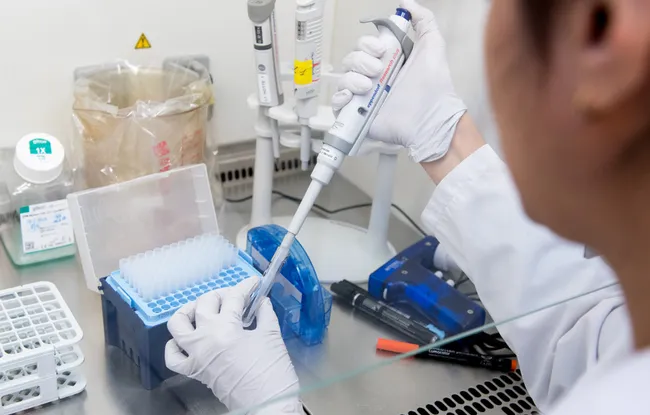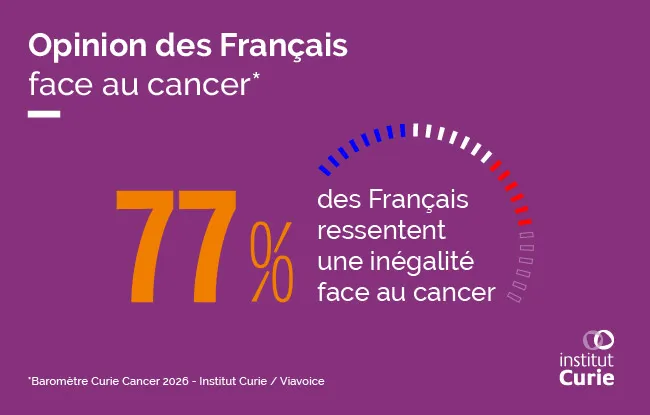- Home >
- Institut Curie News >
- Immune system: spotlight on monocyte fate
This research was published in the PNAS, and paves the way for new therapeutic targets in chronic inflammation and cancer that involve these cells in particular.
Monocytes are immune cells specialized in inflammatory responses. Within tissue, they transform into other immune cells: macrophages or dendritic cells. This is known as differentiation. When a normal inflammatory reaction occurs, these cells (macrophages and dendritic cells) help eliminate pathogens, activate other immune cells, and ultimately repair tissue. Yet these same cells can, in some cases, be disregulated, have harmful effects, and be a root cause of pathologies. This is what happens in chronic inflammation, where dendritic cells maintain an inflammatory state by over-activating the other cells. In cancer, too, macrophages can exacerbate tumor growth by over-activating tissue regeneration and new blood vessel formation.
To date, the factors inherent to monocyte differentiation into macrophages versus dendritic cells remain little-known. Earlier research conducted at Institut Curie demonstrated that monocytes need environmental signals in order to differentiate. These signals may be produced by other cells, gut flora bacteria, or external sources.
Now, the Immune Responses to Cancer team at Institut Curie (Immunity and Cancer unit, Inserm-Institut Curie) has revealed that bacteria and virus recognition impacts on monocyte differentiation, causing monocytes to transform into either macrophages (viruses) or dendritic cells (mycobacteria). Researchers also shone light onto the molecular mechanisms at play here, thereby identifying new pathways involved in the monocyte differentiation process. These findings may pave the way for new therapeutic applications in humans for treating inflammatory diseases and cancer.
our work is shedding light onto the previously unknown differentiation processes for certain immune system cells, which points to new therapeutic possibilities. We hope to use this knowledge to target and prevent the harmful effects caused by macrophages and dendritic cells, which occur in a great many inflammatory diseases and cancer.
Explains Elodie Segura, an Inserm researcher from Institut Curie’s Immune Response and Cancer team
|
Reference: TLR or NOD receptor signaling skews monocyte fate decision via distinct mechanisms driven by mTOR and miR-155. Alice Coillard, Léa Guyonnet, Alba De Juan, Adeline Cros, and Elodie Segura. PNAS October 26, 2021 118 (43) e2109225118; https://doi.org/10.1073/pnas.2109225118 |




